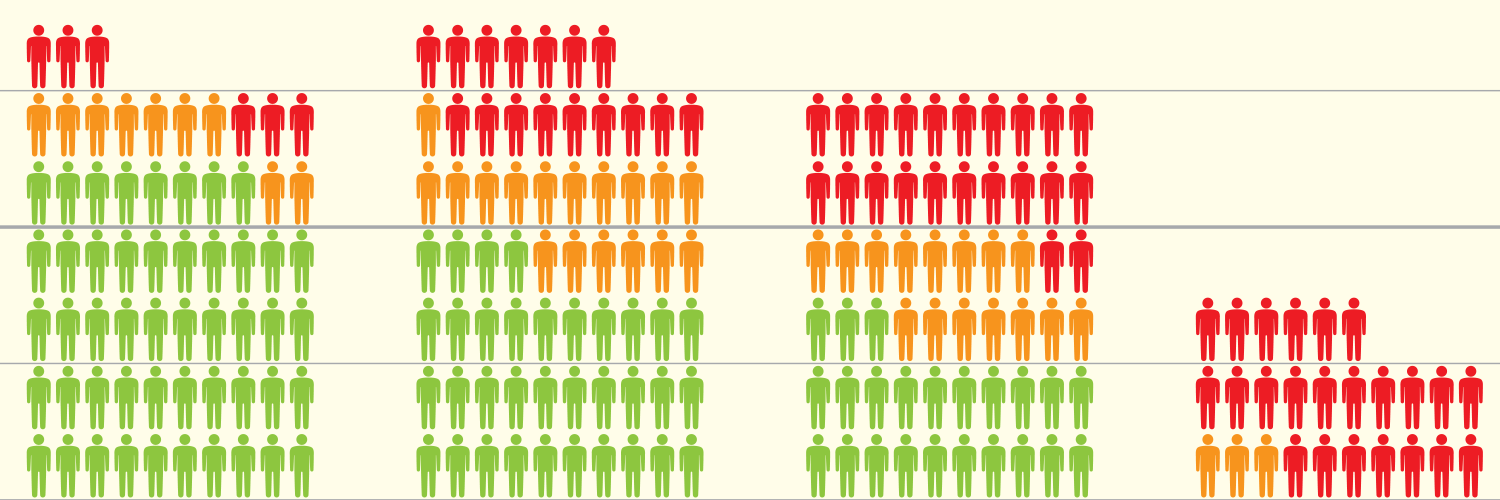State payroll data obtained by the Freedom Foundation from the Washington Department of Social and Health Services (DSHS) indicate a quarter of the state’s individual provider home care aides (IPs) had no union dues withheld from their wages in October 2018, the highest percentage since the U.S. Supreme Court’s 2014 decision in Harris v. Quinn made dues payment optional for these “partial-public employees.”
The union representing IPs, SEIU Local 775, has fought hard against complying with Harris and has relied on a host of schemes to prevent IPs from learning about and exercising their constitutional rights.
One of the more flagrant tactics involved having the state seize full union dues — amounting to 3.2 percent of wages — from IPs’ paychecks by default. Caregivers had to affirmatively object in writing for the automatic deductions to cease.
After the U.S. Supreme Court’s June 27, 2018 decision in Janus v. AFSCME held that it is unconstitutional for public employers to collect union dues from an employees’ pay without prior authorization, the Freedom Foundation in July filed a class-action lawsuit in federal court against Gov. Jay Inslee, DSHS and SEIU 775 for violating IPs’ First Amendment rights with the automatic dues deductions.
By August, the state and union had ended the practice.
At the time, the Freedom Foundation estimated ending the automatic deduction scheme would benefit about 6,000 IPs. This turned out to be spot on.
In May 2018, according to DSHS data, 4,248 IPs had no union dues deducted from their wages, representing 10.7 percent of the IP population.
The most recent DSHS data provided to the Freedom Foundation for October 2018 show 10,291 IPs no longer had SEIU 775 deductions from their pay, accounting for 24.5 percent of the bargaining unit.
Though it took four years, the decline is a big change for a union that bragged shortly after Harris that, “Less than one half of one percent of caregivers have chosen to give up their rights and withdraw from membership.”
But the end of the automatic deduction scheme still does not provide an accurate picture of SEIU 775’s level of support among IPs.
The IP workforce has expanded significantly in recent years and has generally high turnover. Because of the passage of SEIU-backed Initiative 1501 in 2016, the Freedom Foundation has been unable to contact thousands of IPs to inform them of their rights.
Meanwhile, SEIU 775 and DSHS continue to provide inaccurate and misleading information to caregivers at mandatory orientations and trainings and continue to pressure IPs into signing up for union membership.
Once signed, the terms of union membership forms continue to lock IPs into paying dues for at least one year and only allow them to cancel the dues deductions from their wages during an arbitrary annual 15-day escape period.
The Freedom Foundation is challenging both I-1501 and the validity of SEIU 775’s membership forms in federal court.
Just like SEIU 775 did after Harris, government unions representing traditional public employees are downplaying membership losses they’ve experienced since Janus.
A recent article in Governing magazine entitled, “Defying Predictions, Union Membership Isn’t Dropping Post-Janus,” quoted several union officials who claimed their unions have actually gained members since the court’s decision made dues payment voluntary.
While it’s difficult to judge the accuracy of these claims nationwide before better information is available, it clearly isn’t the case for at least some major unions.
The Freedom Foundation reported in October 2018 how 20 percent of state agency employees represented by the Washington Federation of State Employees were no longer paying any dues or fees, according to state payroll data.
And as government unions are employing many of the same tactics pioneered by SEIU in its response to Harris, it will probably take several years to equip public employees with the information they need to make informed choices about union membership and to finish the long process of ending union workarounds in court.
In short, whether government union leaders remain so optimistic four years from now remains to be seen.
Regardless, the ability of public employees to finally make their own choices about union membership is long overdue and will, over time, result in unions having to pay more attention to staying in tune with their membership.











